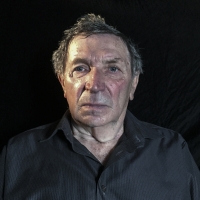Extraordinary success of the European Champion

Stáhnout obrázek
Viliam Polakovic was born during World War II on October 13, 1943, in Rača. He started playing table tennis thanks to the neighbours whom he trained with. He began in the legendary pub Peklo, as a nine-year-old played in the Račian club and at the age of thirteen he introduced himself in the adult league. He was the only Slovak who came with a Czechoslovak expedition to a workshop in China, where he spent three months. In 1958, (as a fifteen-year-old), he competed at the European Championship in Prague, where Czechoslovakia won silver in doubles. The greatest success came in 1961 when he won the European Championship title in singles, doubles, mixed doubles and teams at the European Junior Championships in Berlin. This remained unparalleled by any table tennis since then. As a 27-year old, he ended his active career to become a coach. In the following year, he worked in Czechoslovak and later Slovak national youth team. He was also behind the great success of Alica Grofova, who won silver in the World Championship in 1973 in Sarajevo.
